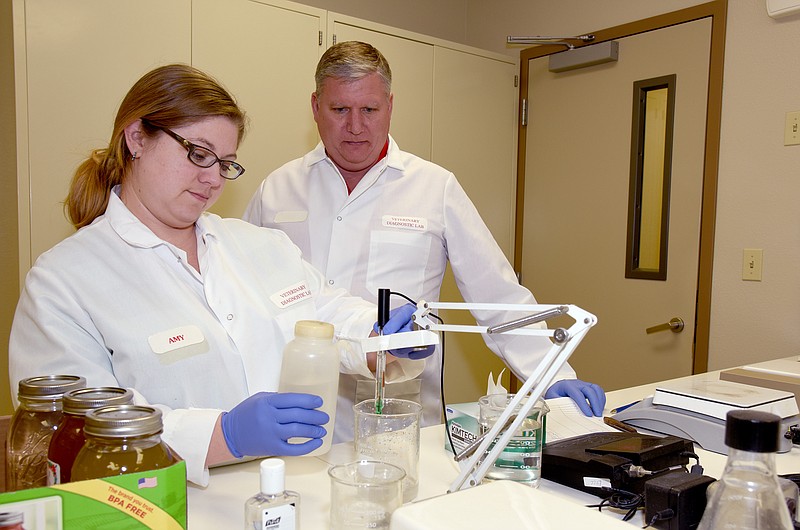The University of Arkansas System Division of Agriculture's Tollett Veterinary Diagnostic Lab is better positioned to help the state's poultry industry now that it's been added to the National Animal Health Laboratory Network as a branch of the Arkansas Department of Agriculture's Veterinary Diagnostic Lab (VDL).
The Tollett lab -- now the 60th in the national network -- has been operated by the Arkansas Agricultural Experiment Station for 14 years, offering diagnostics for poultry and mammals.
"Being certified by NAHLN is a complex and rigorous process," said Nathan Slaton, assistant director of the experiment station. "The lab must maintain a required amount of instrumentation and staff must pass certification to do the testing."
The certification comes as the poultry industry in Arkansas is dealing with highly pathogenic avian influenza, known as HPAI. In 2020, the poultry industry was the state's top commodity in terms of cash receipts at more than $2.6 billion.
"Because a large portion of our poultry production occurs in Northwest Arkansas, adding the Fayetteville lab to the department's NAHLN certification for HPAI testing will greatly enhance our state's animal disease response capabilities," said Wes Ward, Arkansas secretary of agriculture.
Laboratory Director Dr. Randy Moore, a veterinarian, said "being an approved NAHLN member will allow our lab to assist with incidences of highly pathogenic avian influenza in the future. It also allows for our lab to participate in official surveillance and disease suspect testing."
Moore's lab is one of several USDA National Poultry Improvement Plan Labs that are authorized to perform avian influenza serology surveillance testing.
"Blood serum testing is useful for surveillance testing, but PCR testing is a much more useful tool for the early detection of animal diseases, which is essential in limiting the spread of disease during an outbreak," he said.
PCR, or polymerase chain reaction, is a technique that enables researchers to amplify genetic sequences to speed identification of a pathogen.
"Moving forward, we are now equipped to assist with the early detection of highly pathogenic avian influenza, and also to assist with state and federal response during an outbreak," Moore said.
Jean-François Meullenet is director of the Arkansas Agricultural Experiment Station.
"NAHLN certification of the Tollett Lab will improve the Division of Agriculture's ability to serve the poultry industry in Arkansas and throughout the region," said Meullenet. "We appreciate this opportunity to collaborate with the VDL."
The two Arkansas veterinary laboratories will maintain independent administrative and financial status but will share a formal quality management system administered by the state Department of Agriculture's VDL at Little Rock.
The Tollett lab is just one of the varied diagnostic services offered through the Arkansas Agricultural Experiment Station, the research arm of the Division of Agriculture.
To learn about extension programs in Arkansas, contact a local Cooperative Extension Service agent or visit www.uaex.uada.edu. Follow the agency on Twitter and Instagram at @AR_Extension.
Mary Hightower is with the University of Arkansas System Division of Agriculture.

